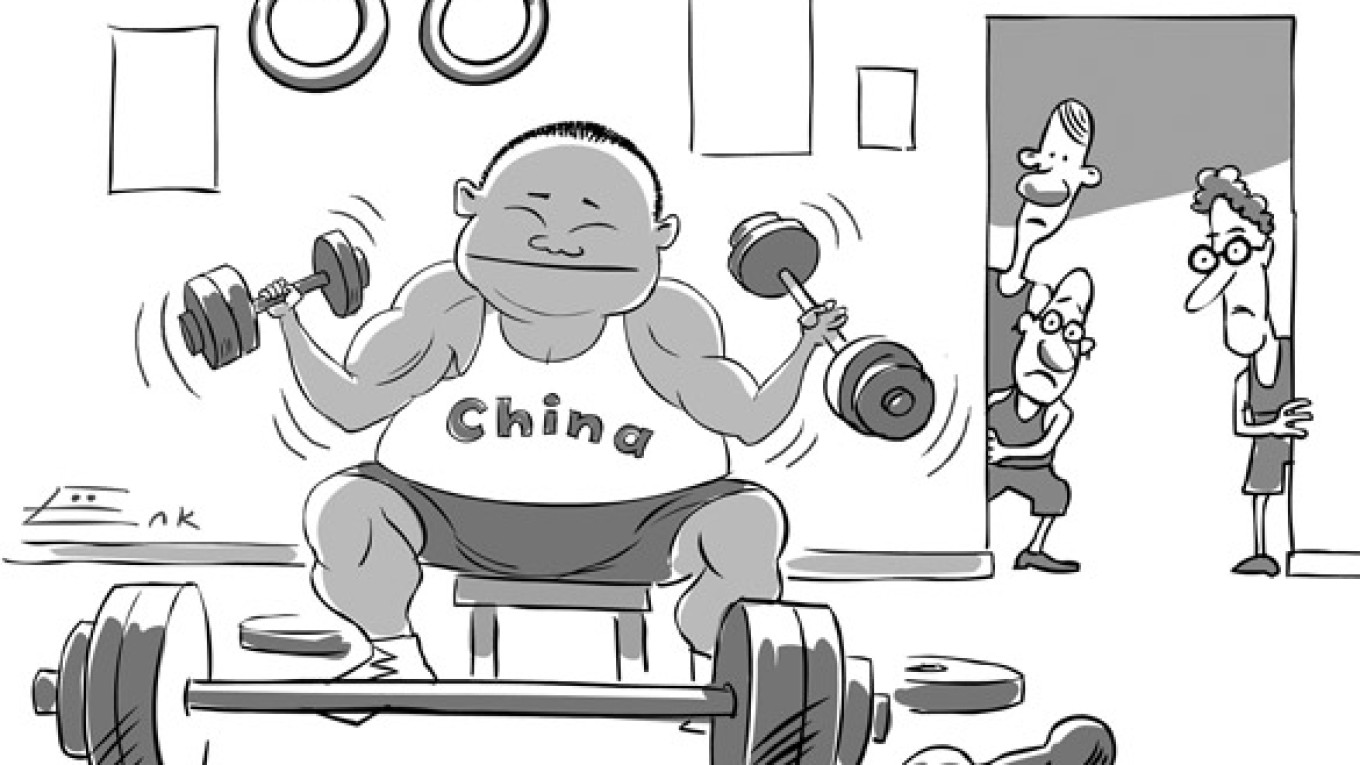When I was assigned to work at the Soviet Embassy in Beijing in 1982, many of my fellow diplomats asked, “What did you do wrong to get such a terrible, backwoods assignment?”
China had a bad reputation at the time. Few Soviets remembered China’s rich history, nor did they understand why the Chinese considered their country to be the center of civilization. But the Soviet people knew well that in 1949, the Communist Party took control of impoverished, semicolonial China and generously helped its Chairman Mao Zedong to build socialism.
The Chinese turned out to be “revisionists.” Mao undertook the Great Leap Forward, forcing peasants to smelt pig iron in their own gardens. When the campaign led to mass famine, Mao unleashed the Cultural Revolution and set the ruthless Red Guard loose to silence the country’s critics. At the same time, the Chinese-Soviet split was in full force during Soviet leader Nikita Krushchev's rule. As a result, the Red Guard threatened to “skin and crush the heads” of the Soviets and other “anti-Chinese clowns.” Beijing officially called on its citizens to “prepare for war and dig trenches.”
By 1982, the memory of all those horrors and passions had been forgotten. Reformers, headed by Deng Xiaoping, came to power, and they referred to the Cultural Revolution as “a thoroughly rotten dictatorship and the most lurid fascism with feudalist impurities.” Deng set out to modernize the country. The new leadership criticized the notion of “permanent revolution” and began building the foundation for China’s new market-based economy.
Today, less than 30 years later, the gross domestic product of the People’s Republic of China will soon be equal to that of the United States, and Chinese-manufactured goods — from computers to shoes — fill the markets of literally every country on earth.
The United States is particularly nervous about China’s increasing economic and political strength in the global arena. China is encroaching on the U.S. zone of influence, primarily in the Asia-Pacific region. As a result, Washington accuses Beijing of every global misdeed — from preparing to attack Taiwan and forcefully seize South China Sea oil fields to establishing “imperialistic control” over developing countries and exporting illegal drugs. To be sure, the United States is not the only one watching China’s rise with anxiety. China’s neighbors are also getting fidgety at the awakening of the “giant dragon” that exerts deadly pressure on them with its economic tentacles and showers them with acid rain.
This is a typical reaction whenever there is a major shift in the global balance of power. Other countries view the new superpower as a threat and start to panic. The question is: Should Russia also panic? Exaggerating the “Chinese peril” will only irritate the Chinese and spoil Russian-Chinese relations.
Russia should instead focus on that which strengthens relations between Russia and China. To begin with, Beijing, like Moscow, is a big supporter of multipolarity in international relations and needs Russia’s support to strengthen it. Second, China has other external problems such as tensions with Japan, India and countries in Southeast Asia and disputes connected with Taiwan. Third, China is facing serious internal problems as well. Given such difficult circumstances, it is clearly in Beijing’s interests to maintain peace with Russia, with whom it shares a 4,000-kilometer border. During the Chinese-Soviet split, Russia and China were enemies. Now, despite ideological differences, we understand each other better and work to solve similar problems. Finally, the economies of the two countries are complementary. For many years to come, China will need an increasing quantity of energy resources from Siberia and the Far East, as well as Russian technology — especially military technology. For its part, Russia is interested in buying Chinese-manufactured goods and receiving Chinese investment and manpower. Russia will not be able to modernize its eastern regions under its own power.
France and Germany offer an interesting example of how former enemies can create a prosperous relationship. The two countries were at war for almost a century, and now the border between them are virtually seamless and their bilateral trade volumes are huge.
It will not be easy to achieve the same relationship between Russia and China, but the two countries have no other choice. On Thursday, China celebrated the 60th anniversary of the creation of the People’s Republic of China, and this offers an excellent opportunity for Moscow and Beijing to make a firm commitment to strengthen economic and political relations for the next 60 years to come.
Yevgeny Bazhanov is the vice chancellor of research and international relations at the Foreign Ministry’s Diplomatic Academy in Moscow.
A Message from The Moscow Times:
Dear readers,
We are facing unprecedented challenges. Russia's Prosecutor General's Office has designated The Moscow Times as an "undesirable" organization, criminalizing our work and putting our staff at risk of prosecution. This follows our earlier unjust labeling as a "foreign agent."
These actions are direct attempts to silence independent journalism in Russia. The authorities claim our work "discredits the decisions of the Russian leadership." We see things differently: we strive to provide accurate, unbiased reporting on Russia.
We, the journalists of The Moscow Times, refuse to be silenced. But to continue our work, we need your help.
Your support, no matter how small, makes a world of difference. If you can, please support us monthly starting from just $2. It's quick to set up, and every contribution makes a significant impact.
By supporting The Moscow Times, you're defending open, independent journalism in the face of repression. Thank you for standing with us.
Remind me later.


